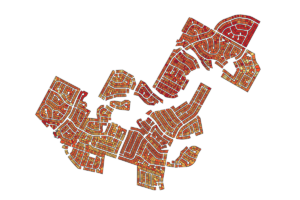AUSTIN, Texas — Authoritarian parenting can lead to depression and somatization in young Mexican American and Dominican American children, according to new research from The University of Texas at Austin’s School of Social Work.
The study, led by social work professor Esther Calzada and published in the Journal of Clinical Child & Adolescent Psychology, examined the prevalence of internalizing behaviors including anxiety, depression, and somatization (when a person has physical symptoms but no physical cause can be found) in Mexican American and Dominican American children aged 4-6, and tested their association to parenting practices.
The study found that almost 50 percent of children were at risk for anxiety, and 10 percent for depression and somatization, with these rates persisting over time. Internalizing disorders such as anxiety, depression and somatization are the most common childhood mental health problems. Latino youths experience higher levels of these disorders than the general population.
“Our study suggests that the disproportionate risk for anxiety, depression and suicide attempts observed among Latino, compared to non-Latino, youths begins way before adolescence. By understanding how parenting can promote healthy emotional development starting early in a child’s development, we hope to develop programs to support Latino families in preventing these serious negative mental health outcomes,” Calzada said.
For Mexican American children authoritarian parenting — defined as strict, controlling, and not responsive to the child’s feelings — was correlated with depression.
A positive correlation between authoritarian parenting and depression was also seen among Dominican American children, along with a negative correlation between authoritative parenting — defined as strict but also responsive to a child’s needs — and somatization.
The study also examined the link between child internalizing behaviors and parents’ adherence to cultural values related to childrearing including respeto, which emphasizes unquestioning obedience and deference to adults; and independence, which emphasizes assertiveness and autonomy.
In Mexican American children, parents’ emphasis on respeto correlated with somatization in their children.
“Parents’ adherence to respeto may impact children not only by fostering authoritarian parenting styles but also directly, by making young children more nervous or distressed during interactions with adults who hold clear authority, such as teachers,” Calzada explained.
Researchers used data from 661 Mexican and Dominican immigrant mothers and children recruited from pre-kindergarten and kindergarten classrooms in New York City. Mothers completed standardized questionnaires at two time points (initially when their children were 4-5 years old, and 12 months later when they were 5-6 years old) to report on parenting practices and cultural values associated with behavior, and on their children’s behavior and emotional functioning. Pre-kindergarten and kindergarten teachers also completed standardized questionnaires assessing children’s behavior and emotional functioning at the two time points.




